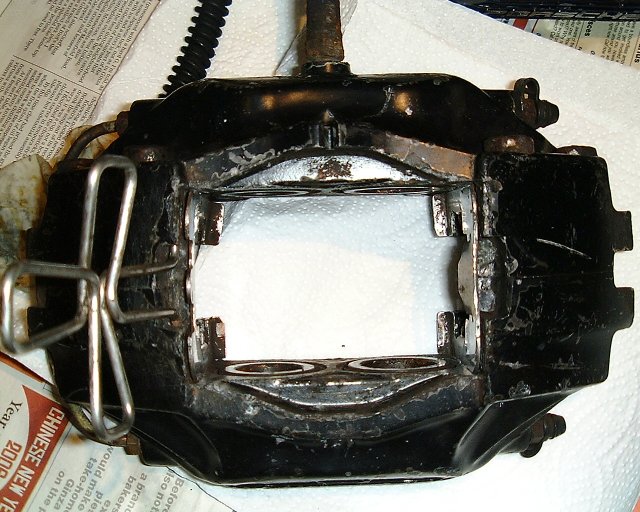944psi
New member
Just looking at the calipers that have come of my car and can't decide if the plates are lifiting or not. The bit of the plate with the tab on (left of the pic) appears to be encroaching on the space occupied by the pads - is this normal?
When I took the pads out, they took a little bit of persuasion to pull them from the calipers, although it wasn't excessive force. Or should I just assume there is some lift and treat accordingly?

When I took the pads out, they took a little bit of persuasion to pull them from the calipers, although it wasn't excessive force. Or should I just assume there is some lift and treat accordingly?



![. [FONT=verdana,geneva"] [FONT=verdana,geneva"]](/forum/styles/default/pcgb/space.gif)







